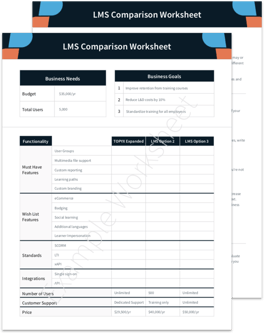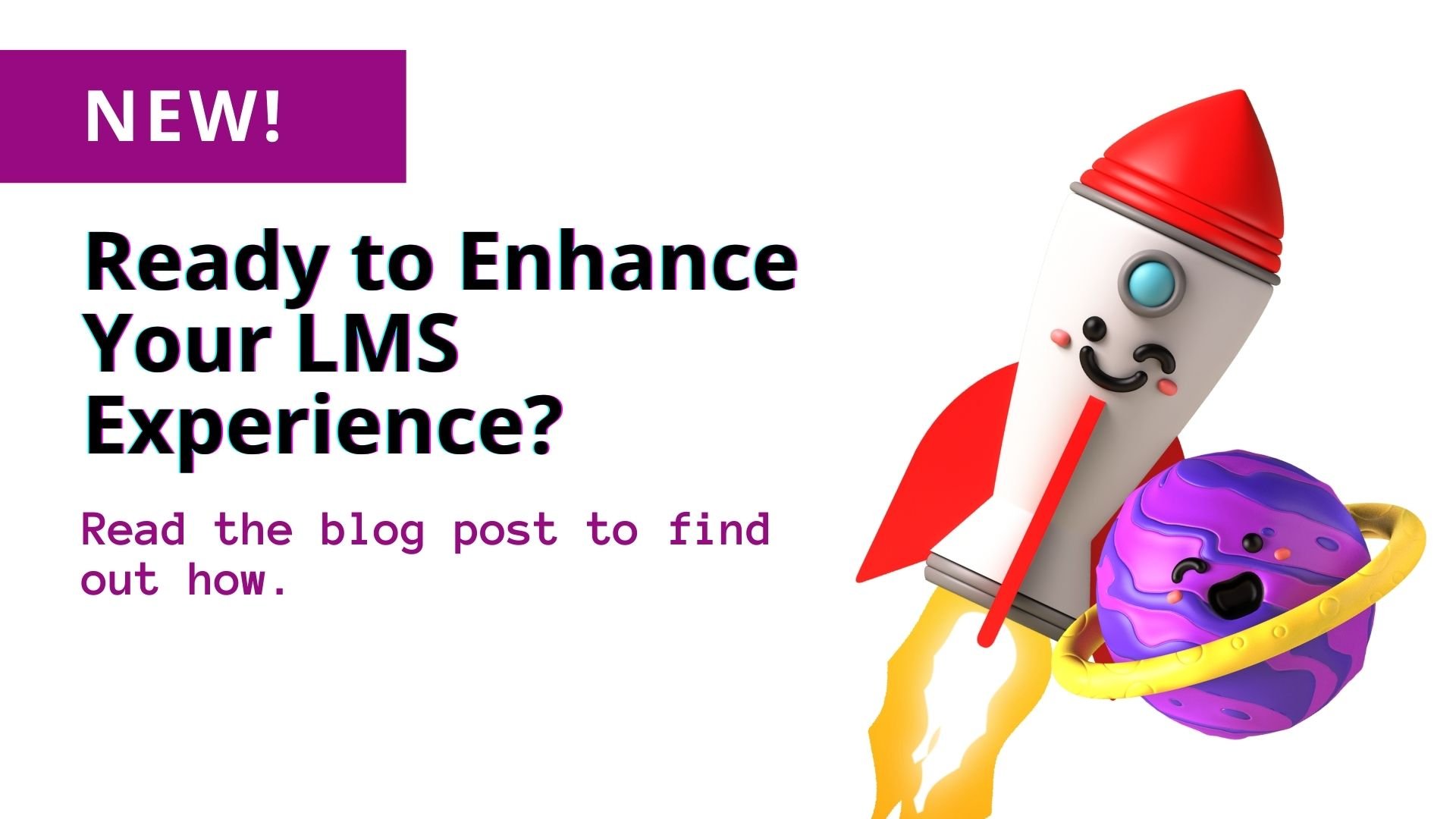A daunting task for many organizations to undertake is an LMS features comparison. There are multiple choices, variables, and types of LMS to consider when making a decision. Often, the cost can be a determining factor in the decision.
However, overall satisfaction with an LMS is related not to the cost of the system, but to whether or not it includes essential features, which contribute to the overall functionality and end-user experience with the system. These features include:
- Tracking and Reporting: An easy-to-use dashboard for tracking and reporting is one of the main features of a learning management system. Users should be able to export user data and use it to create a variety of reports in real time that can be used to create learning paths, pinpoint skill gaps, monitor usage and achievements, and measure user activity and progress toward individual and group goals.
.jpeg?width=629&height=419&name=pexels-photo-210661%20(2).jpeg)
- Accessibility and Integration: Accessibility is one of the best methods for ensuring end-user satisfaction with an LMS. Participants want to be able to complete training at their convenience, incorporated into their schedules at their discretion. A cloud-based LMS that is accessible from remote locations, on a variety of devices, inside and outside of normal business hours, is one way to boost LMS participation, user engagement, and overall system satisfaction from both the company and the end-user perspective. Internally, it is important to ensure that an LMS can integrate easily and seamlessly with existing business applications, to ensure that the LMS does not cause network issues.
- Customizable Learning Paths: Ensuring that an LMS supports customizable courses and learning paths mean that the LMS will meet current and future needs of the organization. With customizable learning paths, the LMS can be directed to support employee skill gaps, career paths, and succession planning.
- Social Learning Tools: One of the most effective means of improving employee engagement with training systems is to incorporate aspects of social learning to course delivery. Social learning can include features such as gamification, video seminars, or discussion forums – all factors that contribute to a collaborative learning environment. These tools not only improve engagement with materials, but they also provide for better retention of information, translation of skills to the work environment, and overall participant satisfaction with the system.
- SCORM Certified: SCORM, or Shareable Content Object Reference Model, refers to a collection of technical standards for eLearning products. If a course is SCORM certified, conforms to SCORM standards, and can be used on any compliant system without the need for revision, translation, or potentially expensive development activities. Choosing an LMS system that is SCORM compliant means that your company has the flexibility to meet current and future requirements for training, should courses systems and requirements change in unforeseen ways.
Related Reading: 4 Things That Should Be on Your Corporate LMS Checklist
The main reasons that participants are unhappy with LMS systems are:
- Limited Social Learning (47%)
- Difficult to Update / Revise Content (39%)
- Limited Tracking and Reporting (32%)
- Inability to Integrate with Enterprise Software (32%)
- Poor End-User Experience (31%)
When choosing an LMS, ensure that your participants engage with training and development initiatives and that your organization is satisfied with the investment. It is also essential to confirm that the LMS selected can meet current and future organizational needs.
A checklist of required features can help you to identify the best learning management system for your company and your employees. We created a LMS Features Checklist to help you choose the best platform for the unique needs of your learners.







